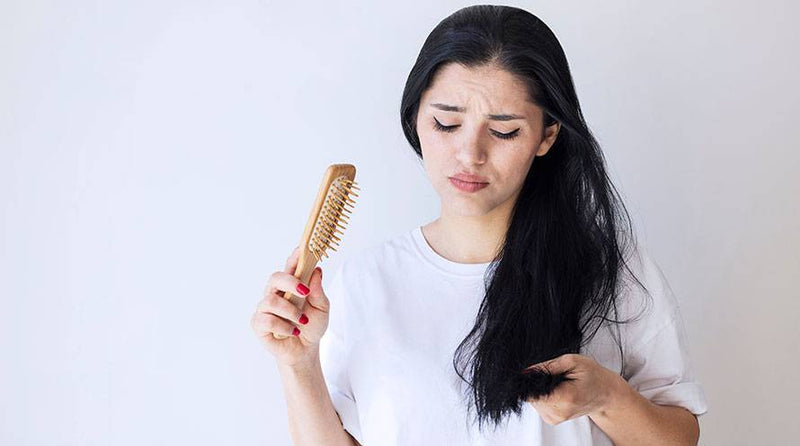Hair Loss: 5 Common Myths You Need to Stop Believing

Debunking 5 Common Hair Loss Myths + Natural Remedies
Hair loss is a topic shrouded in myths and misconceptions, leaving many of us scratching our heads—sometimes literally! Whether it’s blaming the hat you wear every day or fearing that one too many hair washes will lead to baldness, it’s easy to get tangled up in what’s fact and what’s fiction. But fear not! We’re here to comb through the confusion and illuminate the truth behind five common hair loss myths. By debunking these myths, we aim to provide clarity and peace of mind to those experiencing hair loss and save you from unnecessary worry.
Myth 1: Wearing Hats Causes Hair Loss
There’s a widespread belief that donning your favorite cap can lead to baldness, but rest easy, hat lovers—this myth is more fiction than fact. The fear stems from the idea that hats cut off circulation to the scalp, starving hair follicles of blood and nutrients. However, hair loss is primarily caused by genetics, hormonal changes, or certain medical conditions—not your choice of headwear. While tight hats might temporarily restrict blood flow, they don’t cause enough damage to result in hair loss.
Myth 2: Cutting Hair Makes It Grow Back Thicker
This myth suggests that regular trims can make hair grow faster or thicker, but hair thickness and growth rate are determined at the follicle level beneath the scalp, which cutting can’t influence. Trimming removes split ends, making hair look healthier, but it doesn’t alter its growth cycle or actual density.
Myth 3: Stress Is Always to Blame for Hair Loss
Stress can contribute to hair loss, especially in conditions like telogen effluvium, but it’s rarely the only factor. Genetics, hormones, medical conditions, and diet play key roles. So, while managing stress is beneficial, don’t assume it’s the sole reason behind every strand that falls.
Myth 4: Hair Loss Medications Work for Everyone
Hair loss treatments like minoxidil and finasteride can be effective, but they don’t work for everyone. Their success depends on factors like genetics, age, and the underlying cause of hair loss. Always consult a dermatologist for tailored advice and realistic expectations.
Myth 5: Soap or Shampoo Causes Hair Loss
Regular shampooing with the right products doesn’t cause hair loss. In fact, keeping your scalp clean is essential for hair health. Avoid harsh shampoos with sulfates or alcohol, and instead, opt for mild, nourishing formulations. The real triggers for hair loss are usually internal, not in your shower routine.
Natural Remedies That May Promote Hair Growth
- Scalp Massage: Gently massaging the scalp can stimulate blood flow and support hair thickness. Use your fingertips in circular motions for a few minutes daily.
- Aloe Vera: Known for its soothing properties, aloe vera helps unblock hair follicles and conditions the scalp. Use pure aloe vera gel a few times per week.
- Coconut Oil: Rich in lauric acid, coconut oil helps reduce protein loss in hair and nourishes the scalp. It can be used as a pre-wash or leave-in treatment.
- Protein-Rich Foods: Diets rich in protein—like nuts, eggs, and legumes—support hair strength and growth.
- Iron Intake: Iron deficiency is a common cause of hair loss. Add iron-rich foods such as spinach, lentils, and red meat to your meals.
- Pumpkin Seed Oil: When applied topically, this oil may support hair growth by influencing hormonal balance on the scalp.
Final Tip: Everyone’s hair journey is unique. If you’re experiencing significant or sudden hair loss, it’s always best to consult a medical professional to identify the root cause and find the most effective treatment.
